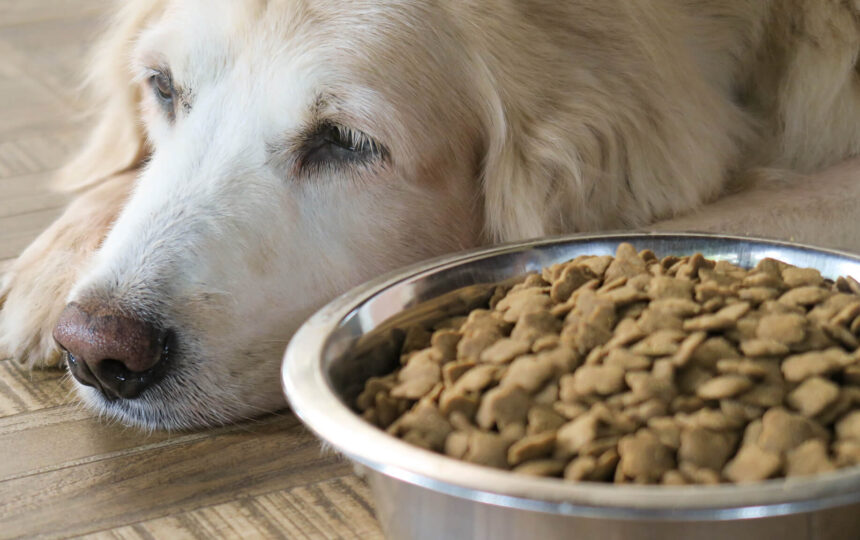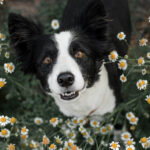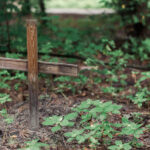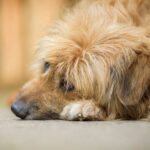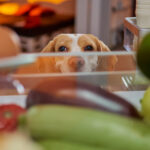As a loving dog owner, it’s tempting to share your meal with your furry friend. However, certain human foods, especially fatty table scraps, can be harmful to dogs, potentially causing serious health issues like pancreatitis. In this blog, we’ll explore why fatty foods are dangerous for dogs, list the top ten table scraps you should never feed your dog, and provide some do’s and don’ts when it comes to sharing human food with your canine companion.
The Danger of Fatty Foods: Pancreatitis in Dogs
Pancreatitis, an inflammation of the pancreas, is often triggered in dogs by the consumption of high-fat foods. The pancreas is responsible for producing enzymes that aid in digestion. When dogs eat fatty foods, their pancreas can become inflamed, leading to a potentially life-threatening situation. Symptoms of pancreatitis include vomiting, diarrhea, abdominal pain, lethargy, and loss of appetite.
Top 10 Worst Table Scraps to Give Your Dog
Fried Chicken: The high fat and oil content can be extremely difficult for dogs to digest.
Bacon: High in fat and often contains harmful preservatives.
Sausages and Hot Dogs: Loaded with fats, salts, and spices that are unhealthy for dogs.
Butter and Margarine: Excess fat content can cause stomach upset and pancreatitis.
Gravy and Fatty Meat Drippings: These are often too rich and fatty.
Cheeseburgers: The combination of fat, cheese, and spices can be harmful.
Pizza: High in fats and oils, particularly dangerous due to toppings like onions and garlic.
Ice Cream: High in sugar and fat, and some dogs are lactose intolerant.
Chocolate: Toxic to dogs and can cause chocolate poisoning.
Any Fried or Breaded Food: The oils and fats used in frying are not suitable for dogs.
Do’s and Don’ts of Feeding Your Dog Human Food
Do’s:
- Offer Healthy Choices: Safe human foods include plain boiled chicken, rice, carrots, and apple slices.
- Consult Your Vet: Always check with your veterinarian before introducing new human foods to your dog’s diet.
- Moderation is Key: Even safe human foods should only be given in moderation.
- Balance Their Diet: Ensure that treats (including human food) don’t make up more than 10% of your dog’s daily caloric intake.
Don’ts:
- Avoid Toxic Foods: Never feed your dog chocolate, grapes, raisins, onions, garlic, or xylitol.
- Skip Fatty Foods: As discussed, fatty foods can lead to pancreatitis and other digestive issues.
- No Cooked Bones: Cooked bones can splinter and cause choking or internal injury.
- Avoid Spicy Foods: Spicy foods can cause stomach upset in dogs.
- Don’t Feed Foods with Artificial Sweeteners: Some sweeteners, like xylitol, are toxic to dogs.
Understanding Canine Nutrition and the Impact of Human Food
To ensure the well-being of your dog, understanding the basics of canine nutrition is crucial. Dogs have different dietary requirements and digestive systems than humans, so what might be a harmless snack for us can be unhealthy or even dangerous for them.
Nutritional Requirements of Dogs
Dogs require a balanced diet that includes proteins, carbohydrates, fats, vitamins, and minerals. While they are primarily carnivorous, dogs can benefit from certain fruits, vegetables, and grains. However, their tolerance to fats is much lower compared to proteins and carbohydrates, making high-fat human foods particularly problematic.
Why Fats Are Problematic
Fats, especially those found in fried and processed foods, are harder for dogs to digest. Excessive fat intake can lead to obesity, heart disease, and pancreatitis. The pancreas plays a vital role in digestion and regulating blood sugar. When overloaded with fat, it can become inflamed, leading to pancreatitis, a condition that can be acute or chronic and may require emergency veterinary care.
Recognizing and Responding to Pancreatitis
Knowing the signs of pancreatitis and how to respond is vital for every dog owner. Symptoms can range from mild to severe and include vomiting, diarrhea, abdominal pain, lethargy, and loss of appetite. If you suspect your dog has pancreatitis:
Seek Immediate Veterinary Care: Pancreatitis can escalate quickly and may be life-threatening.
Withhold Food and Water: Your vet may advise you to withhold food and water to rest your dog’s pancreas.
Follow Treatment Plans: Treatment may include IV fluids, medications, and a change in diet.
Prevent Recurrence: After recovery, prevent recurrence by strictly adhering to a low-fat diet and avoiding table scraps.
Feeding Your Dog: Safe Practices
Safe Human Foods for Dogs
While many human foods are off-limits, some can be safely shared in moderation. These include:
Lean Meats: Plain, cooked meats like chicken or turkey without any added spices.
Certain Fruits and Vegetables: Apples, carrots, and green beans are safe and can be good sources of fiber and vitamins.
Plain Rice and Pasta: These can be a good source of carbohydrates, especially for dogs with upset stomachs.
Unsafe Human Foods for Dogs
In addition to fatty foods, several other human foods should be avoided:
Grapes and Raisins: Can cause kidney failure.
Onions and Garlic: Can lead to anemia.
Chocolate, Coffee, and Caffeine: Contain substances that can be toxic to dogs.
Alcohol: Even small amounts can be dangerous.
Alternative Treats and Supplements
Consider healthier alternatives and supplements to keep your dog’s diet balanced:
- Specially Formulated Dog Treats: These are designed to be both appealing and nutritionally beneficial for dogs.
- Omega-3 Fatty Acids: Found in fish oil, they can support skin, coat, and joint health.
- Probiotics: Can aid in maintaining a healthy digestive system.
Educating Family Members and Visitors
Ensure that all family members and visitors are aware of the dangers of feeding table scraps to your dog. Educating them about what is safe and what isn’t can prevent accidental ingestion of harmful foods.
Conclusion
Feeding your dog fatty table scraps can lead to serious health problems like pancreatitis. Being mindful of their dietary needs and the differences between human and canine nutrition is key to maintaining your dog’s health. Stick to a balanced dog diet, be cautious with human food, and always consult your vet with any dietary concerns. By doing so, you can enjoy many happy, healthy years with your four-legged friend.
